Do Solar Panels Lose Efficiency Over Time?
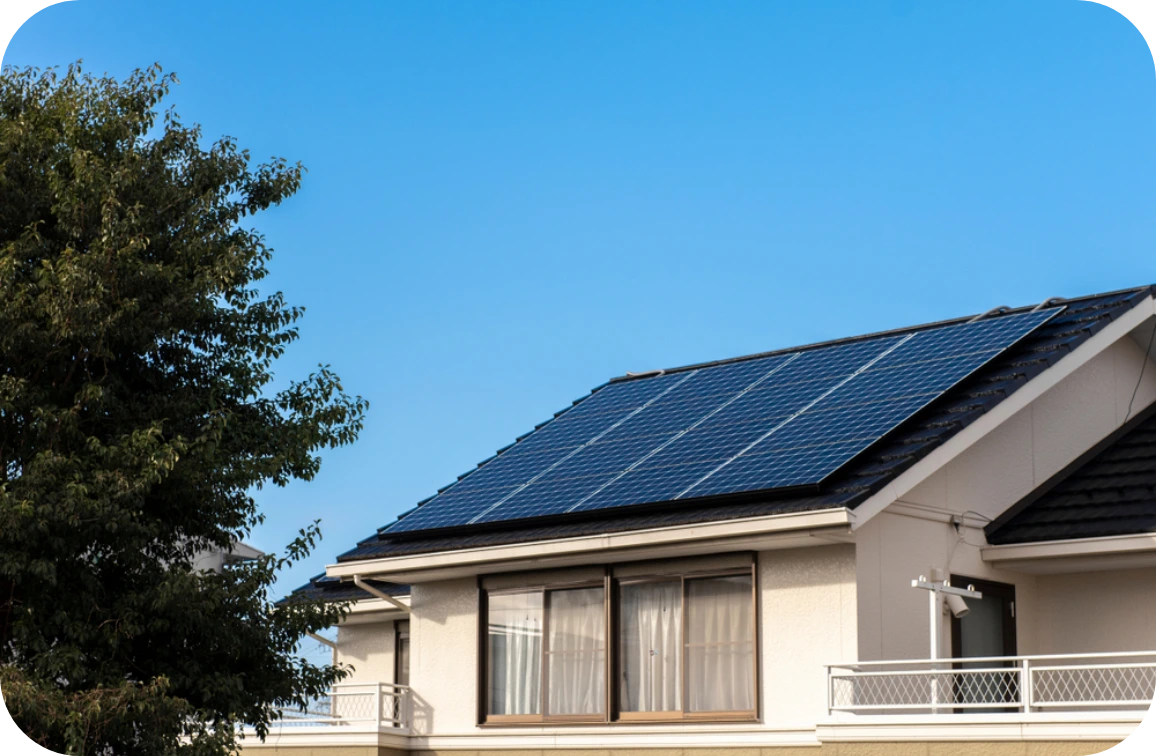
When people consider switching to solar panels, one of the things they wonder about is if solar panels maintain efficiency over time. Let’s look at solar efficiency, panel performance, and ways to extend the lifespan of your solar system to maintain efficiency for longer.
What is Solar Panel Efficiency?
Solar panel efficiency measures how well your solar panels convert the sun’s power into usable solar energy for your home. The ratio of solar efficiency is simple — energy input (sunlight received) to energy output (energy generated) — and is generally represented as a percentage. Understanding your solar panel efficiency is essential, as it directly influences how much energy your system can generate.
When your rooftop solar panels run at high efficiency, they can generate more energy from an average amount of sunlight. This is especially helpful if you have limited space for solar panels or have another reason for maximizing energy production. You may also be able to have fewer panels on your home if you have ones with higher solar efficiency.
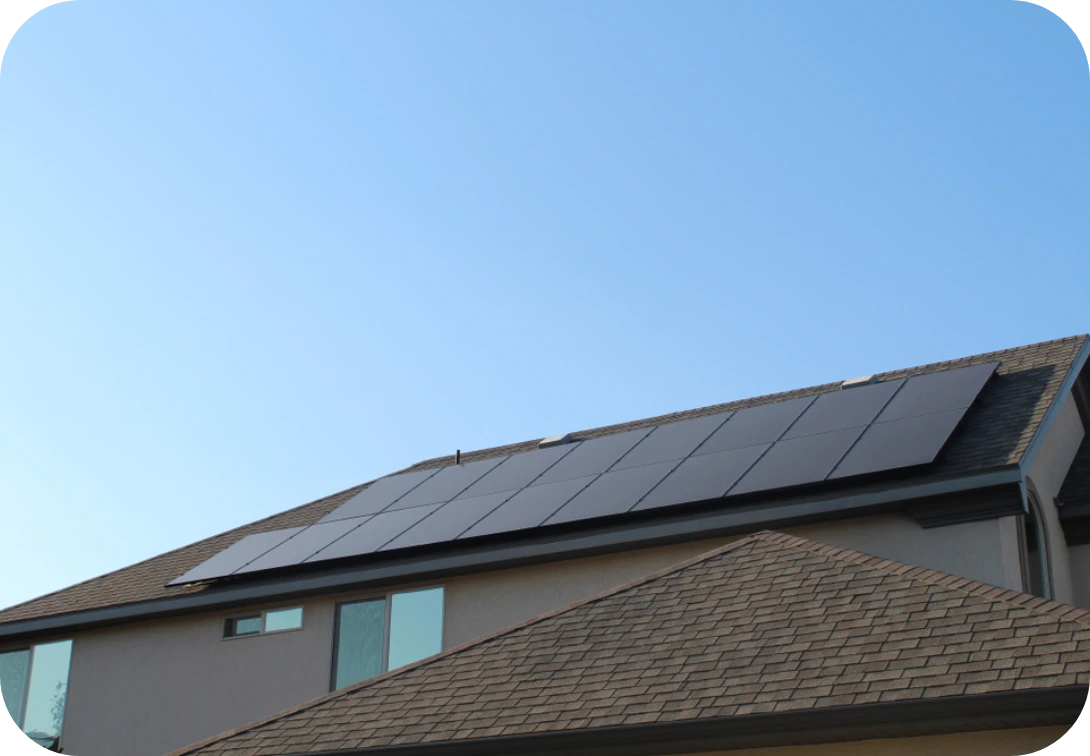
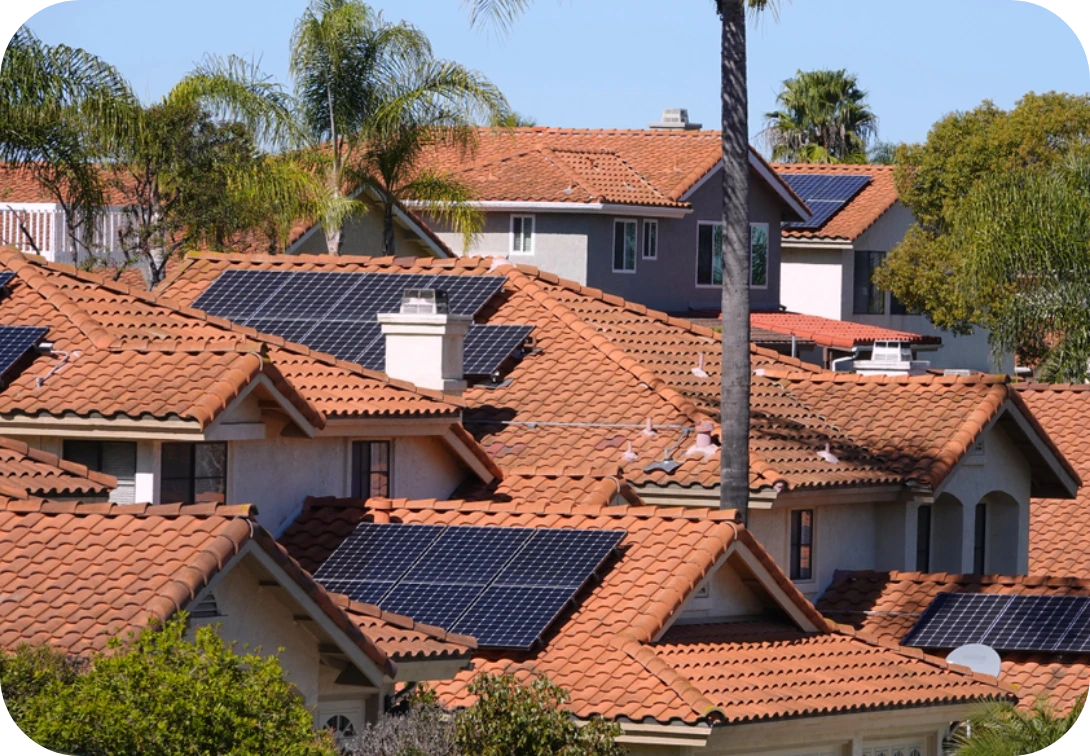
Tracking Solar Panel Efficiency
To best gauge how well your panels are performing, track solar panel efficiency over time. Doing this can help you monitor the highs and maintain them and identify if there is a problem or if the panels start to degrade. There are a few things you’ll need to consider when tracking the efficiency of solar panels over time.
Several factors could influence solar efficiency, but the above actions can give you a better idea of your system performance to keep your panels working at peak performance for longer.
Why Does Solar Panel Efficiency Drop?
While solar panels are designed to be durable and long-lasting, it is natural for their solar efficiency to decrease over time. Two of the most common reasons for decreased solar panel efficiency over time are light-induced and potential-induced degradation.
Light-Induced Degradation
Light-induced degradation (LID) happens when sunlight interacts with impurities in the solar cell, creating a temporary dip in solar efficiency. This degradation is common in solar panels with crystalline cells, though it usually stabilizes over time.
Potential-Induced Degradation
Potential-induced degradation (PID) typically happens due to voltage differences within the panel, like improper grounding or electrical imbalances. This degradation can cause a significant decrease in solar efficiency and should be addressed as soon as possible.
What Factors Can Affect Solar Panel Efficiency?
Several factors can lead to solar panel degradation, including age, natural wear and tear, dirty panels, or even electrical system issues. However, a few other considerations could impact how efficient your solar panels are.
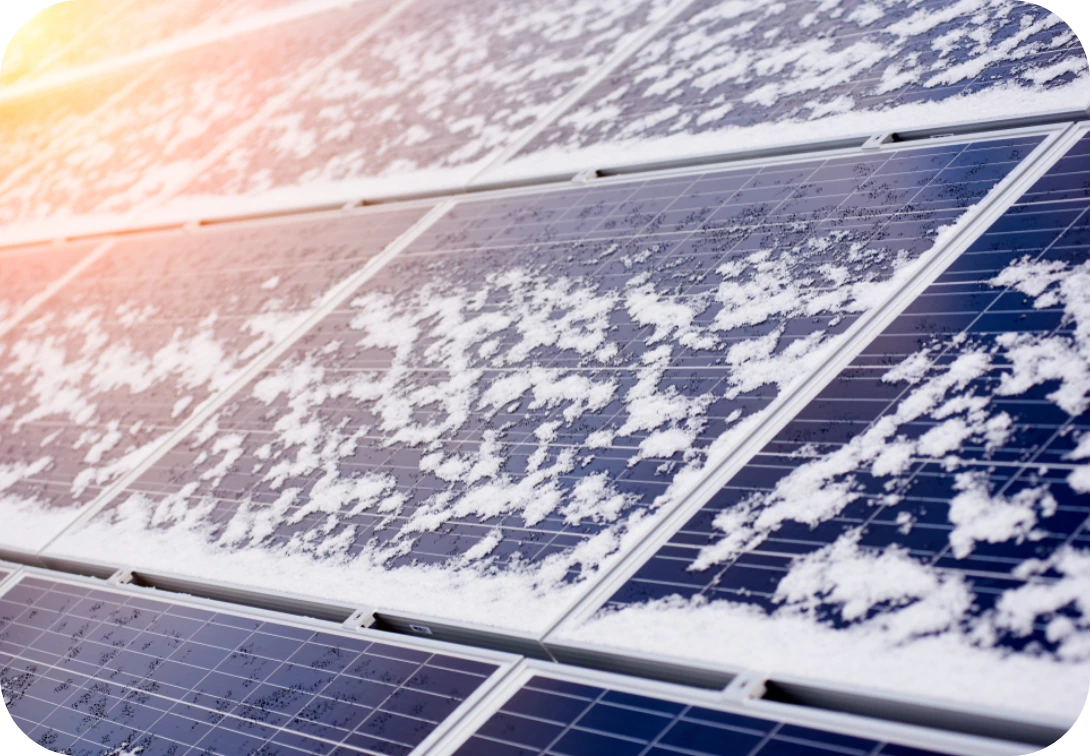
Solar Panel Orientation
The way your solar panels are oriented on your roof can significantly influence solar efficiency. They should face the direction where they’ll get the most direct sunlight throughout the day, and the angle and tilt should be set for maximum solar energy absorption.
Pitch of the Roof
The roof’s pitch directly influences the angle and tilt of your solar panels and their efficiency. Your solar panels should be orientated at the right pitch to ensure they are correctly aligned on the roof while also getting peak sun exposure.
Temperature
Solar panels are designed to work at high temperatures since they are almost always in direct sunlight. However, the excessive heat can cause a slight efficiency decrease in the moment and impact solar panel efficiency over time as internal electrical components could potentially be damaged by the heat.
Shade
When solar panels end up in the shade, they can’t get enough sunlight to convert into energy. A small amount of shade that passes will temporarily decrease your solar efficiency, though prolonged or constant shade could cause more significant efficiency issues. Make sure your solar panels are placed where they can get the most sunlight throughout the day to ensure you have better solar panel efficiency over time.
Balance of System
Solar panel systems have several components that must be carefully balanced to ensure the panels can generate energy efficiently. If the system is poorly designed, outdated, or has failing components, it can significantly reduce the efficiency of solar panels over time.
If you suspect that your solar panels aren’t working at peak efficiency and you’re worried about the functionality of your system, contact your solar company for an inspection instead of trying to figure things out yourself.
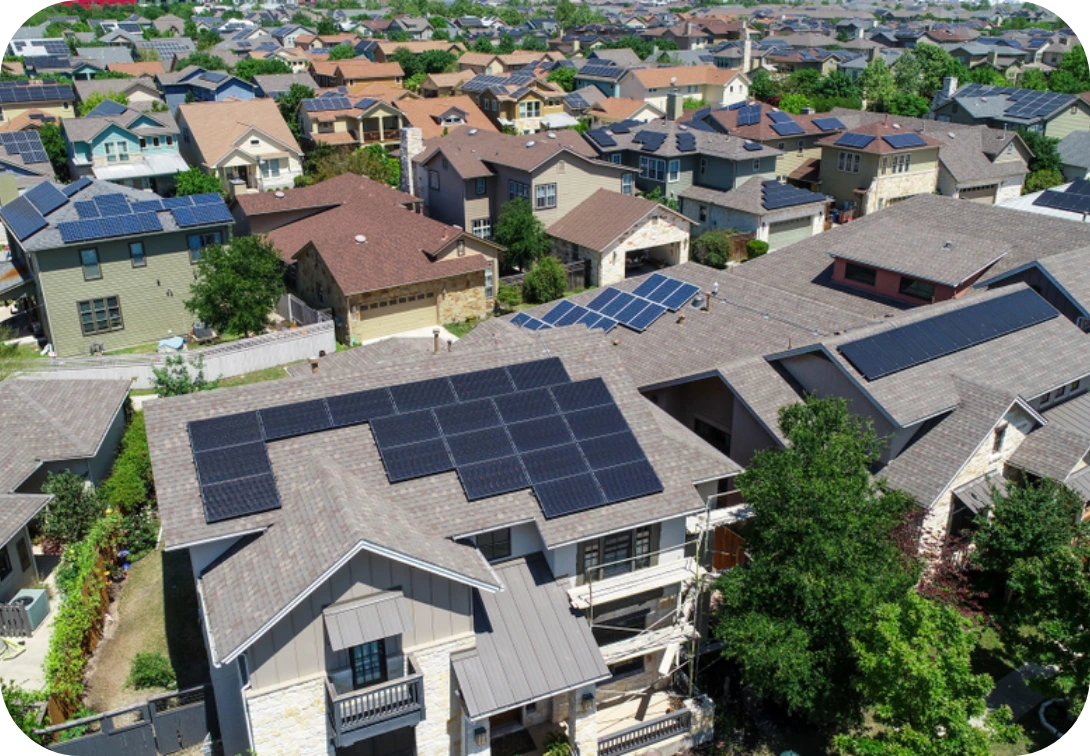
What is the Lifespan of Solar Panels?
As solar products continue to evolve, solar panels are lasting longer than they used to. However, a high-quality panel from a top manufacturer in the industry gives you the best chance at a long-lasting system. The best solar panels have a lifespan of 25 to 30 years, though it’s important to note that solar efficiency will slowly decrease over the panel’s life.
Cost of Solar Panels Over Time: A Tale of Falling Prices
When solar panels were first introduced in the market, they were a new technology with a cost most people couldn’t afford. Thanks to advancements in solar and the way panels are built, they have become more cost-effective and attainable for homeowners everywhere.
Price of Solar Panels Over Time
The first commercially available solar panel hit the market in 1956 at a price of $300 for a one-watt panel. By the mid-60s, the cost had decreased to around $100 per watt, and by 1977, the price was $77 a watt. The price of solar panels over time has continued to decrease, with the average cost per watt sitting around $2.95.
With these price reductions and thanks to local, state, and federal incentives, rebates, and tax credits, solar panels have become more affordable than ever before.
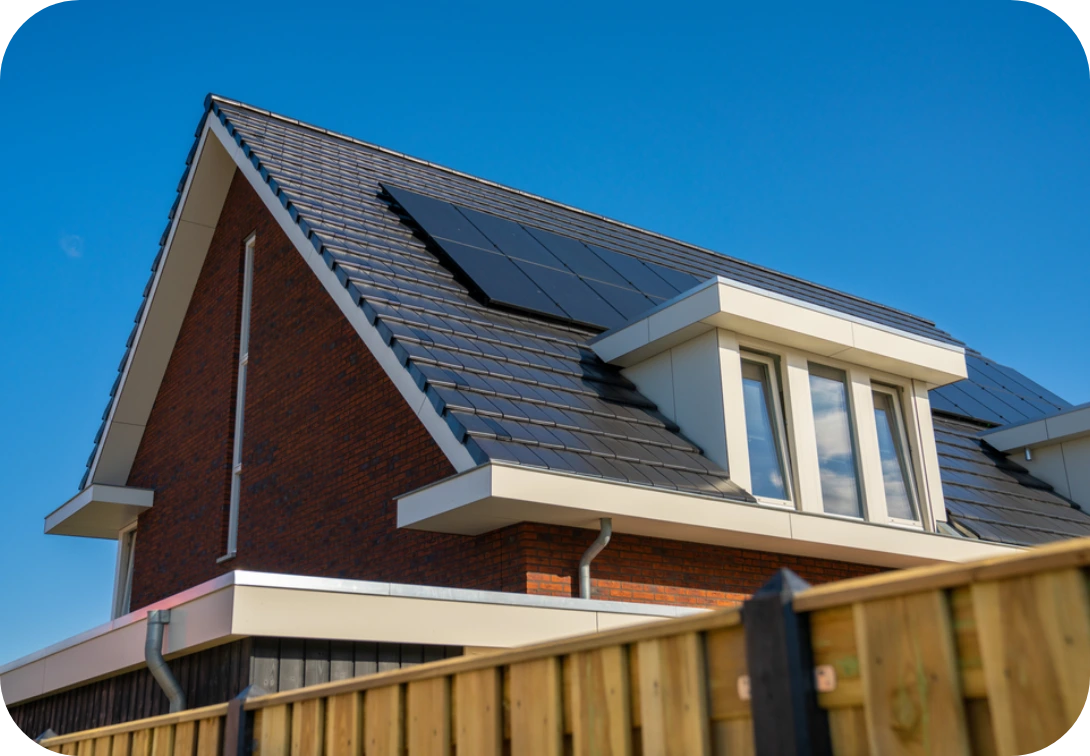
How to Extend the Lifespan of Your Solar Panels
If you’d like to extend the lifespan of your solar panels and maintain solar efficiency, you can do a few things with your system.
Invest in Quality Equipment
Whether installing a brand-new system or upgrading an old one, you want to ensure you’re using quality solar panels from a trusted and reputable company. At Axia Solar, we only use solar panels from Qcells, the top panel manufacturing company in the industry.
Regular Maintenance
While home solar systems are relatively low-maintenance, having your solar company inspect and maintain your panels at least once a year is still a good idea. This gives you peace of mind that your system is working as it should and gives your installers a chance to monitor solar efficiency to see if any adjustments need to be made.
Practice Energy Efficiency
To minimize the amount of energy your system needs to generate, you can implement energy-efficient practices in your home, like using energy-efficient appliances, improving home insulation, turning off lights when you don’t need them, and adjusting your home’s temperature up a few degrees when you aren’t inside.
Have Questions? Axia Can Help!
If you have questions about your current solar system or want to know more about switching to solar energy, Axia is here to help. We have extensive experience in all things solar, and we can’t wait to help you electrify your life. Contact our team today to get started.
FAQS
Frequently Asked Questions
Here is a frequently asked question about community solar.
Warranties and guarantees will vary from manufacturer to manufacturer, so you’ll need to discuss this with your solar installation company based on the type of solar panels they use. However, there could be a few potential warranties, including: